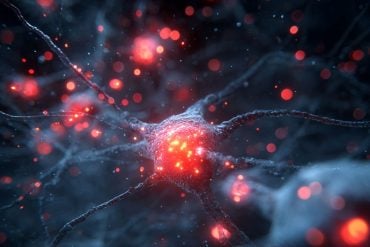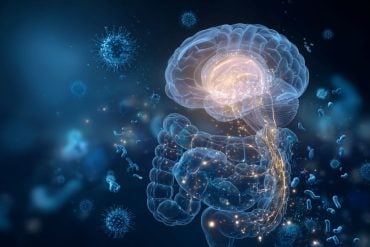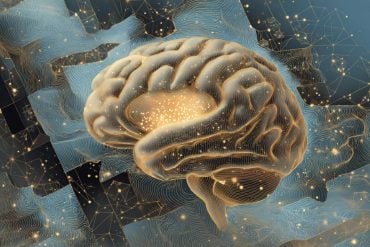Summary: A new neuroimaging study found those who achieved greater success at losing weight showed increased activation in regions of the lateral prefrontal cortex, an area of the brain associated with self control.
Source: Cell Press.
New research suggests that higher-level brain functions have a major role in losing weight. In a study among 24 participants at a weight-loss clinic, those who achieved greatest success in terms of weight loss demonstrated more activity in the brain regions of the lateral prefrontal cortex associated with self-control. The results of the study were published in Cell Metabolism on October 18.
“What we found is that in humans, the control of body weight is dependent largely on the areas of the brain involved in self-control and self-regulation,” says Alain Dagher, of the Montreal Neurological Institute and Hospital in Canada. “That area of the brain has the ability to take into account long-term information, such as the desire to be healthy, in order to control immediate desires.”
Two hormones, leptin and ghrelin, are known to trigger the body to eat in a weight-loss setting. Previous research confirms that these hormone levels change rapidly when weight is shed. “Everybody who loses weight sees this change in leptin and ghrelin,” says Dagher. “It is just that some people, for reasons we do not know, are able to maintain their self-regulation in the face of that signal.”
To assess the roles these hormones and self-control have in achieving weight loss, the researchers studied 24 subjects from a weight-loss clinic. Prior to starting a standard 1,200 kcal/day weight-loss diet, all participants received a functional MRI study (fMRI) of the brain, which assessed regions including the lateral prefrontal cortex, which is linked with self-regulation, and the ventral medial prefrontal cortex, a brain area involved in motivation, desire, and value.
Subjects were shown pictures of appetizing foods as well as control pictures of scenery. The researchers compared the brain activity response to the food pictures, particularly the high-calorie food pictures, for each subject at baseline, one month, and three months. “When we show pictures of appetizing foods, the ventral medial prefrontal cortex area becomes more active on fMRI,” Dagher says.
During the study, researchers noted that at one month and three months, the signal from the ventral prefrontal cortex went down, and it declined the most in people who were more successful at losing weight. Additionally, the lateral prefrontal cortex signal involved in self-control increased throughout the study.

“In the fMRI, the self-control area increased its activity and the value area decreased its activity,” says Dagher. “And the amount of change was predictive of successful weight loss.” While all participants lost weight, those who achieved the greatest weight loss had fMRI levels indicating a better ability to self-control. And, at the end of the 3-month study, the hormones ghrelin and leptin were starting to return to baseline, suggesting that a new set point was achieved.
“These results suggest that weight loss treatments that increase self-control, such as cognitive behavioral therapy, may be helpful, particularly when stress is involved in leading to overeating,” he says. “Stress disrupts the lateral prefrontal cortex control mechanism, but you may be able train people to seek a different strategy.”
Funding: This research was funded by the Canadian Institutes of Health Research.
Source: Carly Britton – Cell Press
Publisher: Organized by NeuroscienceNews.com.
Image Source: NeuroscienceNews.com image is in the public domain.
Original Research: Abstract for “Neurocognitive and Hormonal Correlates of Voluntary Weight Loss in Humans” by Selin Neseliler, Wen Hu, Kevin Larcher, Maria Zacchia, Mahsa Dadar, Stephanie G. Scala, Marie Lamarche, Yashar Zeighami, Stephen C. Stotland, Maurice Larocque, Errol B. Marliss, and Alain Dagher in Cell Metabolism. Published October 18 2018.
doi:10.1016/j.cmet.2018.09.024
[cbtabs][cbtab title=”MLA”]Cell Press”Weight Loss Success Linked with Active Self Control Regions of Brain.” NeuroscienceNews. NeuroscienceNews, 18 October 2018.
<https://neurosciencenews.com/self-control-weight-loss-10042/>.[/cbtab][cbtab title=”APA”]Cell Press(2018, October 18). Weight Loss Success Linked with Active Self Control Regions of Brain. NeuroscienceNews. Retrieved October 18, 2018 from https://neurosciencenews.com/self-control-weight-loss-10042/[/cbtab][cbtab title=”Chicago”]Cell Press”Weight Loss Success Linked with Active Self Control Regions of Brain.” https://neurosciencenews.com/self-control-weight-loss-10042/ (accessed October 18, 2018).[/cbtab][/cbtabs]
Abstract
Neurocognitive and Hormonal Correlates of Voluntary Weight Loss in Humans
Insufficient responses to hypocaloric diets have been attributed to hormonal adaptations that override self-control of food intake. We tested this hypothesis by measuring circulating energy-balance hormones and brain functional magnetic resonance imaging reactivity to food cues in 24 overweight/obese participants before, and 1 and 3 months after starting a calorie restriction diet. Increased activity and functional connectivity in prefrontal regions at month 1 correlated with weight loss at months 1 and 3. Weight loss was also correlated with increased plasma ghrelin and decreased leptin, and these changes were associated with food cue reactivity in reward-related brain regions. However, the reduction in leptin did not counteract weight loss; indeed, it was correlated with further weight loss at month 3. Activation in prefrontal regions associated with self-control could contribute to successful weight loss and maintenance. This work supports the role of higher-level cognitive brain function in body-weight regulation in humans.






